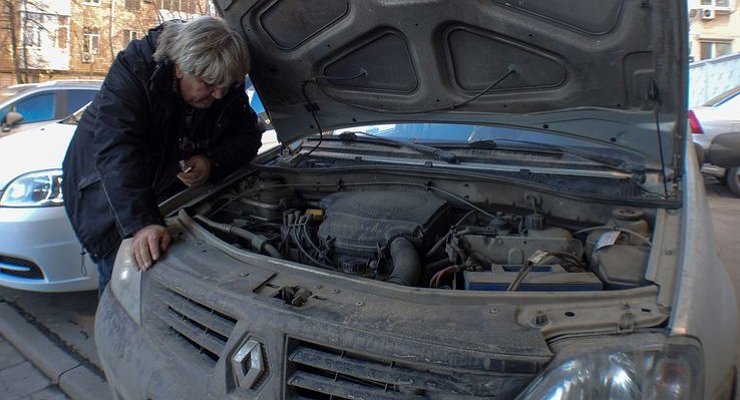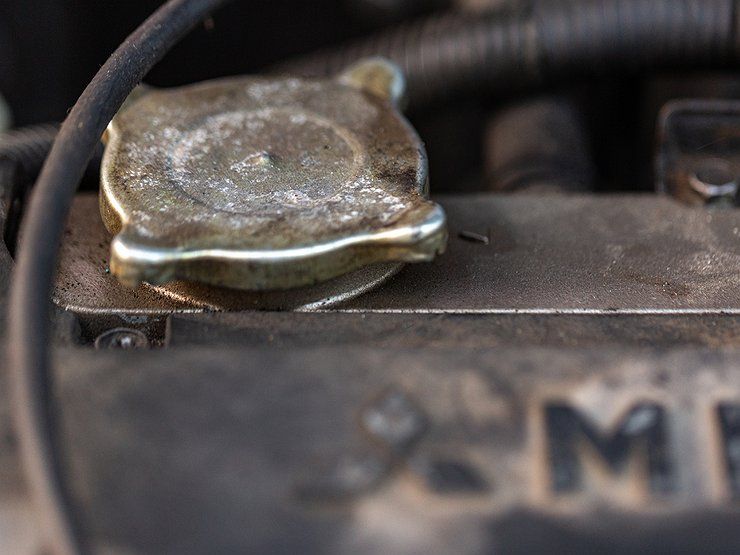Why modern cars consume more oil and how to deal with it?
- September 22, 2022
- 0
It seems that innovative technologies in car production should lead to a reduction in engine oil consumption, but the opposite is true. Why is this happening? Does it
It seems that innovative technologies in car production should lead to a reduction in engine oil consumption, but the opposite is true. Why is this happening? Does it

Even at the dawn of the automobile industry, the oil consumption of the first cars was comparable to the fuel consumption of the car itself. Gradually, technology developed and engines became more efficient not only in terms of fuel consumption, but also in terms of oil consumption. Here, however, is the paradox! – now more and more cars are appearing on the market, which have a higher consumption of lubricants compared to cars of previous model series.
The fact is that the design of current engines differs significantly from engines of the recent past. The environmental trend is gaining momentum. In pursuit of regulatory compliance and fuel economy, powertrain designers use all kinds of tricks to reduce friction between moving parts in the engine and the weight of the parts themselves, which directly affects the rapid leakage of engine oil.
Engineers now use lightweight pistons that have a very low height. A light piston gives off more heat to the cylinder, so it is prone to overheating quickly. In addition, a “short skirt” piston has more freedom of movement in the cylinder. To avoid this, the designers have reduced the mounting distances. This makes the oil film between the oscillating parts very thin. Under heavy loads, piston rings wear out quickly and can no longer fulfill their function of controlling the lubricant.
Yes. Even Soviet scientists found that copper prevents increased wear of the engine cylinder-piston group. If soluble copper salts are added to the oil, soon, under the influence of the loads formed during the friction process, the parts of the engine cylinder-piston group will be covered with a copper film, which will protect them from the negative effects of hydrogen and from unwanted wear.
The effectiveness of this method has been proven in numerous tests. Now Cupper is engaged in the production of “copper” lubricants. The manufacturer creates its own functional additive package based on copper salts – it is this package that provides all the properties of the lubricant.
But don’t just blame car manufacturers for high oil consumption. Sometimes this can happen due to the driver’s fault. There are several reasons why oil burns in large quantities. Therefore, a few life hacks that help save money are not superfluous.
Use only high quality lubricants. Due to inexperience, car owners fill in oils not recommended by the car manufacturer, for example 15W-40 instead of 5W-30. Always read the owner’s manual of the car, there is information about what kind of oil your vehicle needs.
Change used engine oil in a timely manner, which accelerates the wear of gaskets, seals, pistons, piston rings and cylinders.
Bad spark plugs can not only increase your vehicle’s fuel economy, but they can also cause unburnt fuel to get into your engine oil, causing it to lose its properties. That is why it is so important that spark plugs are always in good condition. Just like the fuel system.
Finally, it pays to let go of the aggressive driving style. The more often you put a heavy load on the car and be the first to break down at a traffic light, causing the engine to overheat, the more often you change the engine oil.
Preventing these issues from occurring can help control engine oil consumption and more serious problems on the road. Prevention is the key to help avoid misunderstandings. Therefore, check the level and condition of the engine oil more often – at least once or twice a month. Replace lubricant if necessary: do not wait for the interval recommended by the manufacturer.


Even at the dawn of the automobile industry, the oil consumption of the first cars was comparable to the fuel consumption of the car itself. Gradually, technology developed and engines became more efficient not only in terms of fuel consumption, but also in terms of oil consumption. Here, however, is the paradox! – now more and more cars are appearing on the market, which have a higher consumption of lubricants compared to cars of previous model series.
The fact is that the design of current engines differs significantly from engines of the recent past. The environmental trend is gaining momentum. In pursuit of regulatory compliance and fuel efficiency, powertrain designers use all sorts of tricks to reduce friction between moving parts in the engine and the weight of the parts themselves, which directly affects the rapid leakage of engine oil.
Engineers now use lightweight pistons that have a very low height. A light piston gives off more heat to the cylinder, so it is prone to overheating quickly. In addition, a “short skirt” piston has more freedom of movement in the cylinder. To avoid this, the designers have reduced the mounting distances. This makes the oil film between the oscillating parts very thin. Under heavy loads, piston rings wear out quickly and can no longer fulfill their function of controlling the lubricant.
Yes. Even Soviet scientists found that copper prevents increased wear of the engine cylinder-piston group. If soluble copper salts are added to the oil, soon, under the influence of the loads formed during the friction process, the parts of the engine cylinder-piston group will be covered with a copper film, which will protect them from the negative effects of hydrogen and from unwanted wear.
The effectiveness of this method has been proven in numerous tests. Now Cupper is engaged in the production of “copper” lubricants. The manufacturer creates its own functional additive package based on copper salts – it is this package that provides all the properties of the lubricant.
But don’t just blame car manufacturers for high oil consumption. Sometimes this can happen due to the driver’s fault. There are several reasons why oil burns in large quantities. Therefore, a few life hacks that help save money are not superfluous.
Use only high quality lubricants. Due to inexperience, car owners fill in oils not recommended by the car manufacturer, for example 15W-40 instead of 5W-30. Always read the owner’s manual of the car, there is information about what kind of oil your vehicle needs.
Change used engine oil in a timely manner, which accelerates the wear of gaskets, seals, pistons, piston rings and cylinders.
Bad spark plugs can not only increase your vehicle’s fuel economy, but they can also cause unburnt fuel to get into your engine oil, causing it to lose its properties. That is why it is so important that spark plugs are always in good condition. Just like the fuel system.
Finally, it pays to let go of the aggressive driving style. The more often you put a heavy load on the car and be the first to break down at a traffic light, causing the engine to overheat, the more often you change the engine oil.
Preventing these issues from occurring can help control engine oil consumption and more serious problems on the road. Prevention is the key to help avoid misunderstandings. Therefore, check the level and condition of the engine oil more often – at least once or twice a month. Replace lubricant if necessary: do not wait for the interval recommended by the manufacturer.
Source: Avto Vzglyad
I’m Sandra Torres, a passionate journalist and content creator. My specialty lies in covering the latest gadgets, trends and tech news for Div Bracket. With over 5 years of experience as a professional writer, I have built up an impressive portfolio of published works that showcase my expertise in this field.